-
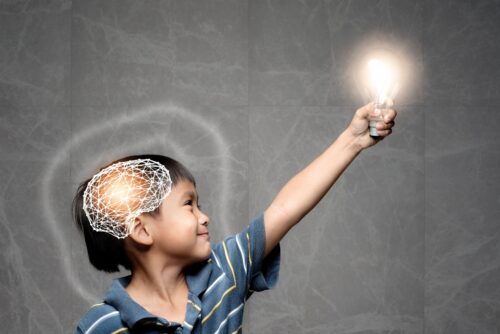 This Free Webinar was recorded on January 12th, 2023 and is for educators and school professionals! Without the ability to self-regulate, students can't apply other SEL skills or shift their behaviors. Explicit teaching isn't enough. Students need bottom up co-regulatory experiences to learn to self-regulate. Doing this effectively isn't easy and takes practice This free 1 hour webinar will teach you the process for helping students borrow your regulatory capacity as they develop their own. Learn tools that support you in embodying regulation as you teach students and classrooms to regulate through challenges. And the best part is, what you learn can be applied one-on-one, in groups, or with the whole classroom. Scroll below for details.
This Free Webinar was recorded on January 12th, 2023 and is for educators and school professionals! Without the ability to self-regulate, students can't apply other SEL skills or shift their behaviors. Explicit teaching isn't enough. Students need bottom up co-regulatory experiences to learn to self-regulate. Doing this effectively isn't easy and takes practice This free 1 hour webinar will teach you the process for helping students borrow your regulatory capacity as they develop their own. Learn tools that support you in embodying regulation as you teach students and classrooms to regulate through challenges. And the best part is, what you learn can be applied one-on-one, in groups, or with the whole classroom. Scroll below for details. -
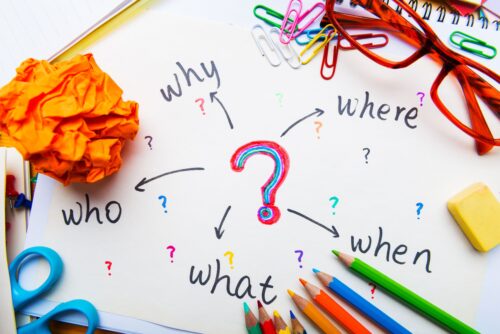 This Free Webinar was recorded on May 10th, 2023 and is for all professionals working with students! As professionals working with students, it's been a long year. Many of us have spent much of it trying to make sense of students' behaviors Maybe even feeling helpless, or angry, not knowing exactly what to do next. We understand your dilemma and don't want you to spend the summer and next year, asking the same questions. Register for this free webinar to explore how behaviors, even those we don't love, can provide a roadmap explaining what's going on AND what we can do about it. If you're asking, “but what if the behavior is disrupting learning for other students?” Great question! We’ll chat about that too. Scroll below for details.
This Free Webinar was recorded on May 10th, 2023 and is for all professionals working with students! As professionals working with students, it's been a long year. Many of us have spent much of it trying to make sense of students' behaviors Maybe even feeling helpless, or angry, not knowing exactly what to do next. We understand your dilemma and don't want you to spend the summer and next year, asking the same questions. Register for this free webinar to explore how behaviors, even those we don't love, can provide a roadmap explaining what's going on AND what we can do about it. If you're asking, “but what if the behavior is disrupting learning for other students?” Great question! We’ll chat about that too. Scroll below for details. -
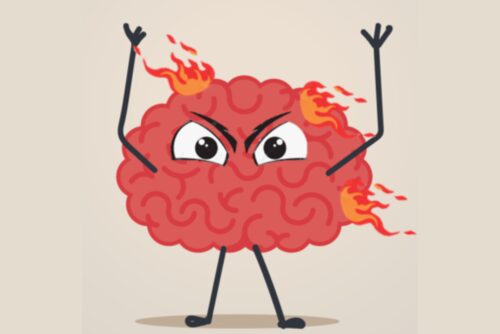 This Free Webinar was recorded on August 10th, 2023 and is for all educators and professionals working with students! Providing students with a sense of security can be challenging without understanding how the brain perceives safety and threat ...
This Free Webinar was recorded on August 10th, 2023 and is for all educators and professionals working with students! Providing students with a sense of security can be challenging without understanding how the brain perceives safety and threat ...- Have you spent hours trying to create a warm environment, yet still find your students wanting to leave the classroom?
- Do you have good relationships with your students, yet still have some responding to you negatively?
- Have you had students seemingly "lose it" over what appear to be small issues?
-
 This Free Webinar was recorded on April 18th, 2024 and is for all educators and professionals working with students! Are you tired of feeling like you're constantly hitting a wall when it comes to behavior change? ... You're not alone. Many of us who work in schools find ourselves in a cycle of frustration, trying to stop student behaviors without seeing any real progress. But what if there's a different approach? In this free upcoming webinar, we'll explore a perspective that challenges traditional methods of behavior change and offers a path to real growth and transformation. During the webinar, you'll learn:
This Free Webinar was recorded on April 18th, 2024 and is for all educators and professionals working with students! Are you tired of feeling like you're constantly hitting a wall when it comes to behavior change? ... You're not alone. Many of us who work in schools find ourselves in a cycle of frustration, trying to stop student behaviors without seeing any real progress. But what if there's a different approach? In this free upcoming webinar, we'll explore a perspective that challenges traditional methods of behavior change and offers a path to real growth and transformation. During the webinar, you'll learn:- The surprising reason why focusing solely on stopping behaviors can backfire
- The key components missing from traditional approaches to behavior change
- Practical tips and techniques for creating lasting change and fostering positive growth
-
 This Free Webinar was recorded on August 10th, 2022 and is for educators or anyone that works in schools. Stress and anxiety are impacting everyone, making teaching and learning very challenging. To support a healthy learning environment for all of us, we must address our own stress and anxiety first. None of us can be effective when our brains and bodies are overwhelmed. Neuroscience can help us understand what is happening in moments of dysregulation. More importantly, it can guide us in moving through the stress and keeping ourselves healthy. Why does this matter? When we make choices instead of simply reacting, we decrease the likelihood of behaviors escalating for both us and our students! Scroll below for details.
This Free Webinar was recorded on August 10th, 2022 and is for educators or anyone that works in schools. Stress and anxiety are impacting everyone, making teaching and learning very challenging. To support a healthy learning environment for all of us, we must address our own stress and anxiety first. None of us can be effective when our brains and bodies are overwhelmed. Neuroscience can help us understand what is happening in moments of dysregulation. More importantly, it can guide us in moving through the stress and keeping ourselves healthy. Why does this matter? When we make choices instead of simply reacting, we decrease the likelihood of behaviors escalating for both us and our students! Scroll below for details. -

Educators and school professionals this free webinar is for you!
You’re committed to teaching SEL, but are you noticing that students are not applying what they learn? It’s not just you—this is a common challenge that educators face. The good news? There are specific, actionable changes you can make to ensure your SEL lessons lead to lasting behavioral change in your students. Enjoy this free webinar and discover what your current SEL program might be missing and how to fix it. Explore how to integrate these vital pieces into what you’re already doing. During this webinar, you’ll learn:- The missing pieces in most SEL programs
- How to help students internalize and use SEL skills independently
- Simple strategies you can incorporate into your existing curriculum
-
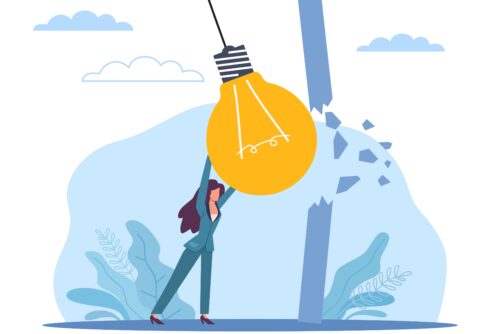
Whether you are working with schools or consulting on behalf of your clients, this free webinar is for you!
What to expect: Explore a Developmental Framework: Learn how to meet educators where they are, paving the way for meaningful connections! Keys to Impactful Collaborating: Implement essential strategies such as talking about stress rather than trauma, focusing on whole classrooms rather than individuals, and much more!Don't miss this opportunity to gain valuable insights that can transform your work with schools and educators!
*This Free Webinar was recorded on May 8, 2024. -

Educators and school professionals this free webinar is for you!
Did you used to believe that being a teacher would be easy and that you’d get lots of time off? 🤣 Working in schools has become even more challenging. Daily stressors, big and small, impact your nervous systems. It’s easy to lose yourself in these moments. When this happens, you carry this heightened state to your next interaction, compounding the stress. By the end of the day, you’re exhausted, and your nervous system is ready to explode or shut down! Then, couple this with our expectations versus the realities of working in schools, and we have the perfect storm fostering feelings of overwhelm, helplessness, and frustration. Explore these and other dynamics impacting your daily functioning and behaviors. Walk away with an understanding that will move you from reacting in the moment, to responding in ways that support your well-being, so you can reclaim our inspiration for teaching.How is this content different?
Our work at the Synergetic Education Institute is about empowering students AND adults. It shouldn’t be a zero sum game. The well-being of your students doesn’t have to be at your expense. *This Free Webinar was recorded on October 16th 2024. -
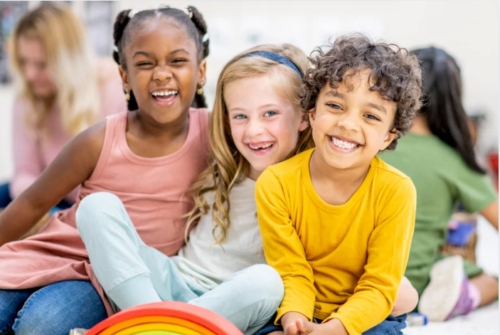 This 21-hour program dives deeply into understanding the context in which learning and growth take place. Neuroscience can help us understand what is happening in moments of dysregulation, so we can learn how to support regulation for children and classrooms and create regulatory environments. You’ll learn to use brain and body state awareness to guide you in applying strategies and learn how to talk to others about the science behind the strategies you’re using. Utilizing a developmental approach, we’ll focus on supporting both educators and children, as we explore what it means to become an external regulator. Navigating the complexities of our interactions will allow us to shift even the most challenging dynamics. Welcome, we are excited to share this journey with you.
This 21-hour program dives deeply into understanding the context in which learning and growth take place. Neuroscience can help us understand what is happening in moments of dysregulation, so we can learn how to support regulation for children and classrooms and create regulatory environments. You’ll learn to use brain and body state awareness to guide you in applying strategies and learn how to talk to others about the science behind the strategies you’re using. Utilizing a developmental approach, we’ll focus on supporting both educators and children, as we explore what it means to become an external regulator. Navigating the complexities of our interactions will allow us to shift even the most challenging dynamics. Welcome, we are excited to share this journey with you. -
 This 18-hour foundational course dives deeply into understanding the context in which learning is taking place. Neuroscience can help us understand what is happening for educators and students in moments of dysregulation, so teachers can learn how to support regulation for students and classrooms. You’ll learn to use brain and body state awareness to guide you in applying strategies and learn how to talk to others about the science behind the strategies you’re using. Exploring an embodied approach, we’ll focus on safety and belonging, along with promoting reflective self-awareness, all vital pieces in creating new options for behavior. Welcome, we are excited to share this journey with you.
This 18-hour foundational course dives deeply into understanding the context in which learning is taking place. Neuroscience can help us understand what is happening for educators and students in moments of dysregulation, so teachers can learn how to support regulation for students and classrooms. You’ll learn to use brain and body state awareness to guide you in applying strategies and learn how to talk to others about the science behind the strategies you’re using. Exploring an embodied approach, we’ll focus on safety and belonging, along with promoting reflective self-awareness, all vital pieces in creating new options for behavior. Welcome, we are excited to share this journey with you. -
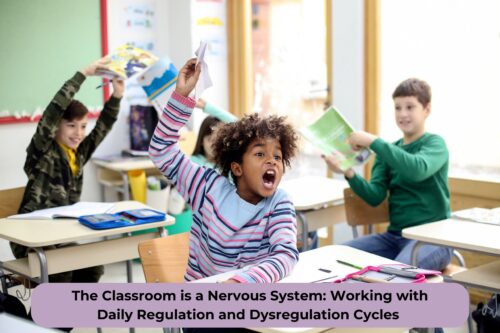 Discover the true importance of regulation and how it's often misunderstood. Don't let regulation be just another buzzword in your vocabulary. Join Judy to explore how regulation and dysregulation cycles affect students and adults throughout the day. Learn how finding moments of regulation in the midst of dysregulation can be a powerful tool in improving your well-being and shifting students’ behaviors. By gaining a deeper understanding of how dysregulation is a natural part of everyday life, we can recognize important clues for supporting students in becoming aware of their own activation and learning effective strategies through challenging moments. Apply this understanding to class-wide activation. Viewing the class as a collective nervous system gives you the ability to support entire groups of students at the same time, without burning out your own nervous system. Empower yourself and your students!
Discover the true importance of regulation and how it's often misunderstood. Don't let regulation be just another buzzword in your vocabulary. Join Judy to explore how regulation and dysregulation cycles affect students and adults throughout the day. Learn how finding moments of regulation in the midst of dysregulation can be a powerful tool in improving your well-being and shifting students’ behaviors. By gaining a deeper understanding of how dysregulation is a natural part of everyday life, we can recognize important clues for supporting students in becoming aware of their own activation and learning effective strategies through challenging moments. Apply this understanding to class-wide activation. Viewing the class as a collective nervous system gives you the ability to support entire groups of students at the same time, without burning out your own nervous system. Empower yourself and your students! -
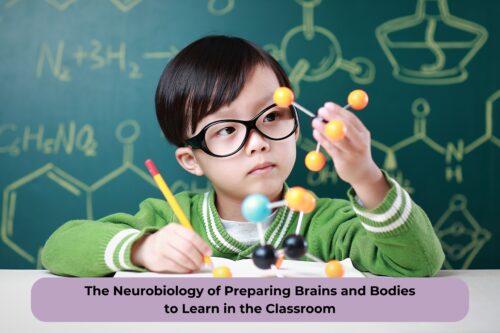 Even highly skilled educators need help to be effective when students are not ready to learn. Stress and anxiety influence daily school life academically and behaviorally, as these impact processing capabilities in the brain, creating dysregulation… And, dysregulation is contagious, growing from one to two students to entire classrooms. You can see the problem if what we’ve been trained to do is ignore certain behaviors. Neuroscience can help us understand what is happening for educators and students in moments of dysregulation and help us learn to recognize when students are not in brain or body states conducive to learning. This is the first step in understanding how to prepare brains and bodies to learn by providing clues about what is needed and what support will move students back to a place of learning.
Even highly skilled educators need help to be effective when students are not ready to learn. Stress and anxiety influence daily school life academically and behaviorally, as these impact processing capabilities in the brain, creating dysregulation… And, dysregulation is contagious, growing from one to two students to entire classrooms. You can see the problem if what we’ve been trained to do is ignore certain behaviors. Neuroscience can help us understand what is happening for educators and students in moments of dysregulation and help us learn to recognize when students are not in brain or body states conducive to learning. This is the first step in understanding how to prepare brains and bodies to learn by providing clues about what is needed and what support will move students back to a place of learning.

